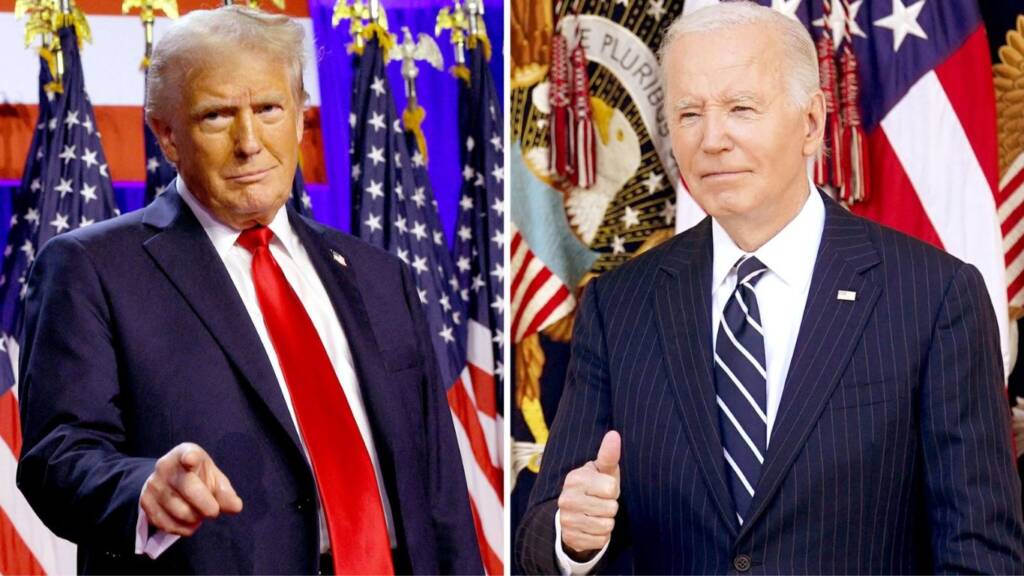As President Joe Biden’s tenure approaches its final hours, the Democratic Party is wrapping his departure in a sentimental narrative, hailing it as the end of a transformative era. Biden’s final address to the nation painted his four years as a time of progress, promising that the United States is heading for a new dawn under the leadership of Donald Trump. Yet, for many, this “transformation” feels more like a whirlwind that left behind fractured alliances, economic turbulence, and a nation divided.
While Democrats celebrate his legacy, critics see it as a contentious chapter marked by policy missteps and global instability. Biden’s administration wasn’t just a solo act; it relied on a network of international proxies, many of which are now retreating. Even groups accused of contributing to geopolitical chaos, such as Hamas, are reportedly stepping back. But the retreat isn’t necessarily an end; it may just be a strategic pause.
Domestically, a seismic shift is underway. In a surprise announcement, TikTok revealed it will cease operations in the United States on Sunday, January 19—the day before the official inauguration of Donald Trump. The Beijing-owned platform, with 170 million American users, is taking this step ahead of a federal ban enacted under Biden.
Trump arrives, TiKTok Runs For Cover
The law, which bans new downloads and updates, cited national security concerns over TikTok’s potential to act as a surveillance tool for the Chinese government. However, TikTok is going further, completely withdrawing from the U.S. market and offering users a chance to download their data before shutting down. This sudden departure raises eyebrows, particularly given the app’s deep ties to Democratic political strategies.
TikTok served as a key tool for engaging young, progressive voters, with Democratic accounts like @BidenHQ and @thedemocrats amassing nearly 800,000 followers. High-profile figures, including Alexandria Ocasio-Cortez, relied on the platform to connect with constituents.
Critics question why a platform deemed a national security risk was allowed to operate freely for years while also serving as a linchpin for Democratic campaigns. The timing of TikTok’s exit underscores the contradictions of Biden’s presidency. While the administration publicly denounced the platform as a threat, its operatives quietly leveraged TikTok to solidify youth voter support. This duality leaves many wondering whether the ban is about security or politics.
However, TikTok running away is nothing when we talk of a man who has very notorious ties with George Soros himself. The closure of Hindenburg Research has sent ripples across global financial and political spheres, marking what some call the end of a controversial chapter.
The firm, once notorious for its explosive reports that rocked stock markets, particularly in India, announced it was ceasing operations. Its founder, Nate Anderson, confirmed the decision in a note.
Hindenburg Shuts Down
Hindenburg Research, a name synonymous with financial turmoil, has shuttered its operations. Known for its scathing reports, the firm’s allegations against Indian Prime Minister Narendra Modi and businessman Gautam Adani sent shockwaves through India’s markets.
Critics have often argued that Hindenburg operated as a deep-state tool, serving geopolitical interests under the guise of financial transparency. Analysts have likened its tactics to those of the Organized Crime and Corruption Reporting Project (OCCRP), alleging ties to George Soros-backed networks.
Hindenburg’s closure coincides with the end of Biden’s presidency, fueling speculation about a broader retreat by entities accused of economic meddling. Reports highlight how Hindenburg’s investigations often aligned with U.S. foreign policy objectives, causing market instability in nations with complex ties to Washington.
Observers draw parallels to the Donald Trump crusade against the “Deep State,” suggesting that such entities were part of a covert strategy to wield financial chaos as a geopolitical weapon. As Biden’s era comes to a close, the departures of TikTok and Hindenburg mark the end of two controversial chapters. However, sceptics warn this is not the final act but a recalibration. Whether these moves signal genuine closures or a reorganisation behind the scenes, the global stage remains poised for the next manoeuvre.
For now, Biden and his proxies may be fading, but the lingering shadows of their influence is still keeping the world on edge.
